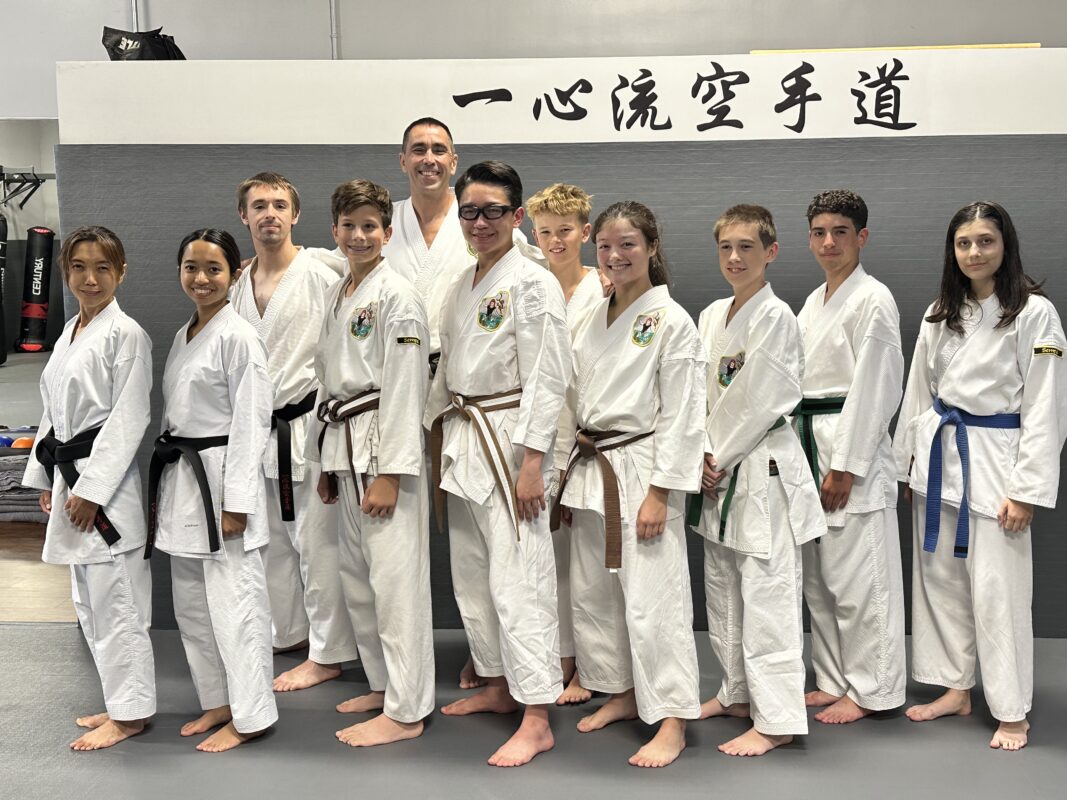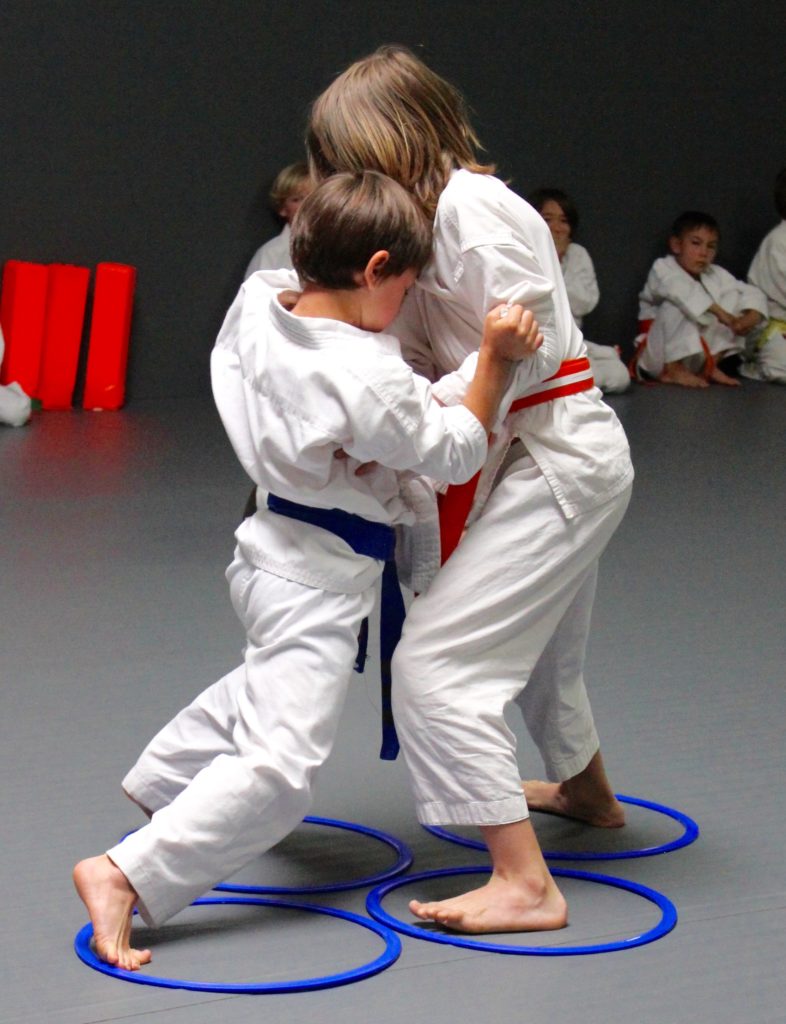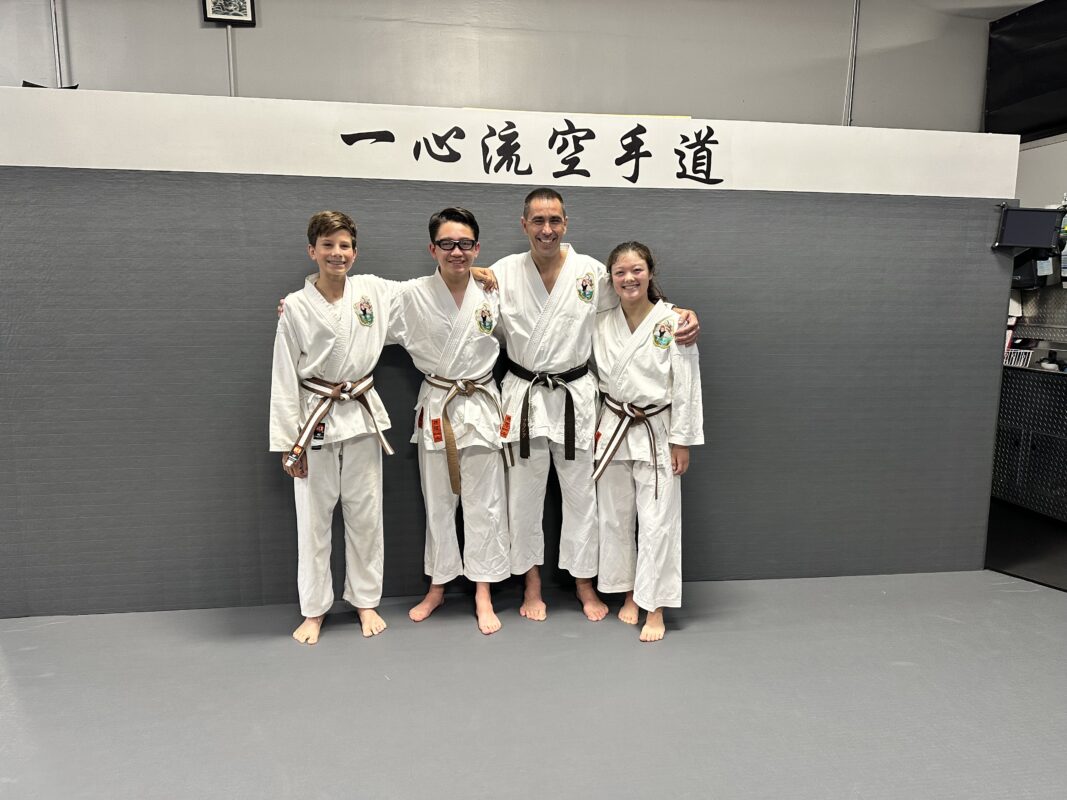Karate
The Senpai/Kohai Relationship in Traditional Japanese Martial Arts
One of the most unique aspects of our program at Practical Karate is the use of the Senpai/Kohai relationship in traditional Japanese martial arts. Senpai (“senior”) and Kōhai (“junior”) are Japanese terms used to describe a formal hierarchical interpersonal relationship found in organizations, businesses, and schools in Japan. In modern education, the Senpai/Kohai relationship is commonly referred to as peer tutoring/mentoring.
Besides being the most efficient way to deliver personalized instruction and feedback, peer mentoring provides children with valuable life skills.
The Kohai receives more interpersonal instruction, feedback, and guidance, furthering the knowledge and mastery of the skills they are learning. The Senpai benefits by gaining a stronger fundamental understanding of the art they are teaching. While this is a symbiotic relationship, the Senpai benefits the most from it, as they learn critical thinking skills, develop empathy, and build self-confidence by fostering a sense of community and belonging. In the process of teaching, students learn valuable life skills that help them in school, vocation, and sports.

Critical Thinking
The active engagement of teaching fosters a deeper understanding of content and promotes the ability to think independently. When students are presented with open-ended questions or real-world problems, they are pushed to explore multiple viewpoints and consider various solutions. This process of exploration encourages them to question assumptions, assess evidence, and draw logical conclusions rather than just repeating what they have been told.
Developing Empathy
When mentors engage with their peers, they are often required to step into their classmates’ shoes to understand their challenges and feelings. This process fosters a deeper emotional connection as mentors actively listen and respond to the needs of their mentees.
Additionally, the tutoring dynamic encourages mentors to reflect on their own learning experiences, promoting perspective-taking. By recalling times when they faced difficulties, mentors can relate better to their peers, which enhances their ability to empathize. The supportive environment created through peer tutoring fosters open communication, allowing students to express their thoughts and feelings more freely and further nurturing empathy.
Building Self-Confidence
Peer tutoring is an effective method for building self-confidence among students. When students take on the role of a tutor, they are often required to articulate their understanding of concepts, which reinforces their own knowledge and mastery of the subject matter. This process of teaching others helps mentors realize their own strengths and capabilities, leading to an increase in self-assurance.
The supportive nature of peer tutoring creates a safe environment where both tutors and mentees can make mistakes and learn from them without the fear of judgment. As students experience success in helping their peers, they receive positive reinforcement, which further boosts their confidence. This sense of achievement can transcend academic subjects, fostering a more positive self-image and belief in their abilities.
Additionally, the interpersonal skills developed during peer tutoring—such as communication, patience, and empathy—also contribute to self-confidence. As students engage in meaningful interactions, they become more comfortable expressing their thoughts and ideas, which can enhance their overall confidence in social settings.

Fostering a Sense of Community and Belonging
Peer tutoring fosters a sense of community and belonging by creating meaningful connections between students. When students engage in tutoring, they interact more closely with their peers, leading to the development of friendships and support networks. This interaction breaks down social barriers and encourages collaboration, as tutors and mentees work together towards common academic goals.
The environment created through peer tutoring is often inclusive and supportive. Students feel valued not only for their academic contributions but also for their unique perspectives and experiences. This acknowledgment promotes a sense of belonging, as students realize that they are part of a community that cares for each other’s success. As students collaborate and share challenges, they develop a collective identity, which strengthens their emotional ties to their peers and the school.
Additionally, peer tutoring initiatives often involve diverse groups of students, allowing for the appreciation of different backgrounds and ideas. This exposure to diversity enhances mutual respect and understanding, essential components of a cohesive community. As students become more connected, they are more likely to engage in school activities and support one another, fostering a positive school culture.
A Sense of Purpose and Belonging to Improve Mental Health and Happiness
A sense of purpose and belonging to a community significantly enhances happiness and mental health by fostering connections, providing social support, and creating a feeling of being valued and understood. When individuals engage in meaningful activities or contribute to a group, they often experience increased self-esteem and reduced feelings of isolation. This connectedness can lead to lower levels of stress and anxiety, and a greater overall sense of well-being, as people feel they are part of something larger than themselves.
In his best-selling book, “Tribe,” Sebastian Junger examines the fundamental human need for community and belonging, particularly in the context of war and contemporary society. Junger argues that the isolation and disconnection experienced in modern life can lead to mental health issues, as humans are inherently social creatures. By examining the bonds formed among soldiers and the sense of purpose derived from shared experiences, he highlights the importance of community in fostering resilience and well-being. The book advocates for a return to tribal values that prioritize connection, support, and shared responsibility. Peer mentoring with the Sempai/Kohai relationship is one of the best ways that we can get back to the tribal values of shared responsibility and experiences.


